Iranians Win Franco-German Prize For Human Rights
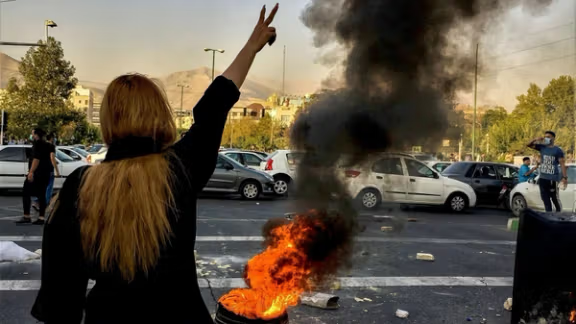
The Franco-German Prize for Human Rights and the Rule of Law 2022 has been awarded to Mahsa Amini and the people of Iran for their courageous fight for freedom.

The Franco-German Prize for Human Rights and the Rule of Law 2022 has been awarded to Mahsa Amini and the people of Iran for their courageous fight for freedom.
Since 2016, France and Germany have jointly honored personalities or organizations who have made outstanding contributions to human rights.
The award winners are NGOs, lawyers, journalists, or activists who defend “the inalienable rights of every human being.” The winners stand up for those whose voices would often not be heard including women, survivors of sexual violence, LGBTIQ+ people, prisoners, children, or migrant workers.
The foreign ministers of France and Germany on Saturday jointly awarded the prize dedicated to Mahsa Amini and people of Iran for standing up for human rights.
The 22-year-old Iranian woman Mahsa Amini was killed in mid-September in police custody for allegedly not wearing proper hijab. Her death resulted in the largest Iranian protests against regime.
“Today, we honor Mahsa Amini and the people of Iran for their courageous commitment with the Franco-German Prize for Human Rights…with our French friends, we stand firmly by the side of these courageous men and women,” said German Foreign Minister Annalena Baerbock.
France’s Foreign Minister Catherine Colonna further stated that “France and Germany are determined to continue to accompany the men and women of Iran in their just struggle. You can count on Annalena Baerbock’s and my support. And we will continue our efforts to ensure the oppressors will not go unpunished.”
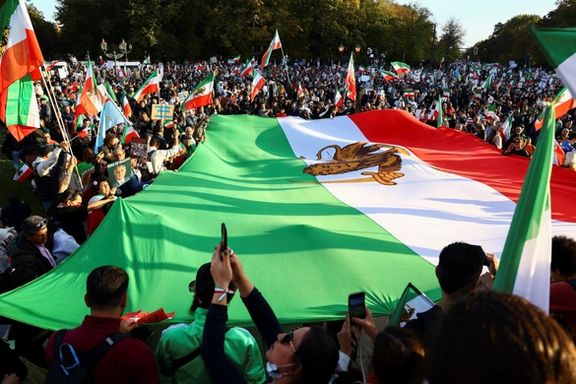
Nearly one million people have so far signed a petition to expel Iran’s ambassadors from the G7 countries in protest to the heavy crackdown on demonstrators.
The campaign initiated by the founding members of “Iranians for Justice and Human Rights” called on the foreign ministers of the United Kingdom, Canada, the United States, Japan, Germany, France, and Italy to immediately designate the ambassadors or other representatives of the Islamic Republic in their countries.
The signatories urge G7 countries to designate the envoys personae non grata and order their expulsion in protest to the illegal and inhumane treatment of protesters in Iran.
The petition also calls on the countries to forcefully and unequivocally demand the release of all prisoners of conscience in Iran.
“The brutal crackdown and violence by …Islamic regime in Iran has resulted in countless deaths, injuries, and incarcerations. It is evident that the Islamic regime in Iran intends to continue and escalate the inhumane violence against its own citizens,” reads the petition.
Since the beginning of the protests after Mahsa Amini's death in the custody of ‘hijab police’, many young and under-age protesters have been apprehended and interrogated. Some were found dead after security forces arrested them in the streets or shot during demonstrations.
Over 18,000 people have been arrested during the recent protests. However, the Iranian regime denies providing any official information about the number of detainees.
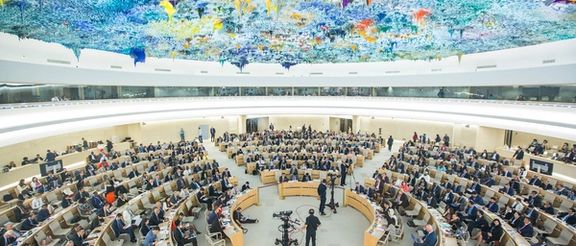
November was a good month for democracy-seeking Iranians who have been on the streets since September, chanting "Woman, Life, Liberty," and "Death to Dictator."
The US government imposed new sanctions on Iranian officials over the protests crackdown sparked by the death of Mahsa Amini, a 22-year-old Kurdish woman in detention after she was fatally beaten in the head for alleged violations of the country’s strict dress code.
The United Nations Human Rights Council held a special session on Iran on 24 November and passed a resolution condemning the deteriorating human rights situation in the Islamic Republic of Iran, the violent crackdown on peaceful protesters, the death of hundreds of people, including scores of children, and the arrests of thousands in connection with the nationwide protests, and voted to establish a Fact-finding Mission to Investigate Alleged Human Rights Violations in Iran Related to the Protests.
On December 14th, there will be an opportunity for the United Nations to undo one of the most grotesque decisions in the history of this world body: appointing the gender-Apartheid Islamic Regime of Iran to the Commission on the Status of Women (CSW).
Since 1946, CSW has been empowering women and promoting gender equality, contrasting with rules, laws, and regulations in Iran's Islamic Regime. The request to hold a vote in the UN's Economic and Social Council came from a resolution led by the US, at the request of Iranian women activists inside and abroad, to oust Iran due to the government crackdown on the women-led protests. But what we’ve seen in the last few weeks is the Islamic Regime of Iran’s (IRI) successful activation of its supporters and apologists in western media, think tanks, and universities to be their propaganda machine against revolution. The IRI and its proxies are engaged in a concerted effort to perpetuate a false narrative about the uprising of Iranian people against their government’s ideology and soften the brutal face of Iran’s regime.
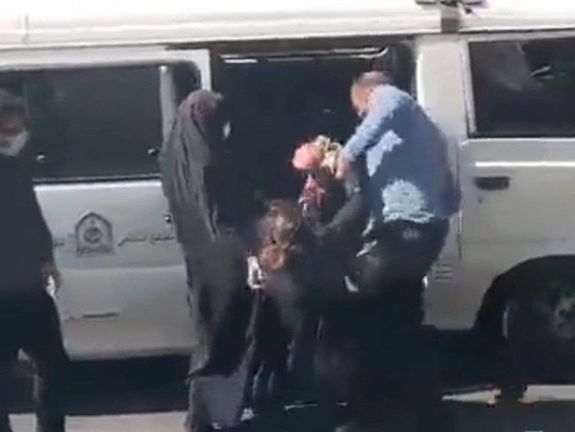
We Iranians living abroad see the competing versions of reality out of Iran, and who gets to choose which reality becomes the narrative, and it’s obvious the some proxies of the regime who have the money and influence are often the ones who decide. For decades, what these so-called experts or pundits said was gaslighting and made us question our account of reality in our experiences by making us question what we know to be the truth.
After years of activists exposing IRI's proxies on social media accounts and revealing the IRI's lobbies, Hossein Ronaghi, a prominent Iranian human rights activist, blogger, and political prisoner, wrote in an Op-ed for the Wall Street Journal, expressing his frustration. "For us, it is as if there are two Irans—the one where we live and another that you read about. Your Iran is defined by a pesky nuclear negotiation. Ours is much worse. It is a religious police state where we live in fear, with countless red lines that most dare not cross. It is a country of repression, censorship, and violence."
A recent New York Times piece shows the propaganda machine in action in regard to Iran’s ‘morality police’ and its future in the country. In response to a reporter's question, IRI's Attorney General said: "The Morality Police has nothing to do with the judiciary, and it was abolished by the same authorities who installed it.” These words prompted reporter Farnaz Fassihi to write an article entitled “Iran Has Abolished Morality Police.” The only problem? It’s not true. On the morning of December 4th, Al-Alam—a channel affiliated with the IRI Broadcasting—denied the possibility of the morality police being shut down and wrote: "Some foreign media have tried to interpret the words of the Attorney General as a retreat by the IRI on the issue of hijab and chastity and affected by the recent riots,” when, according to the IRI, that was not the intended meaning.
For years, Iranians have complained on social media about Fassihi’s reporting and have asked the Times to fix this problem. Iranians even wrote letters to the paper about her “professional infractions”, which include normalizing the Islamic Republic’s brutality through the obfuscation of truth in her journalism over several years.” But our concerns continue to be ignored.
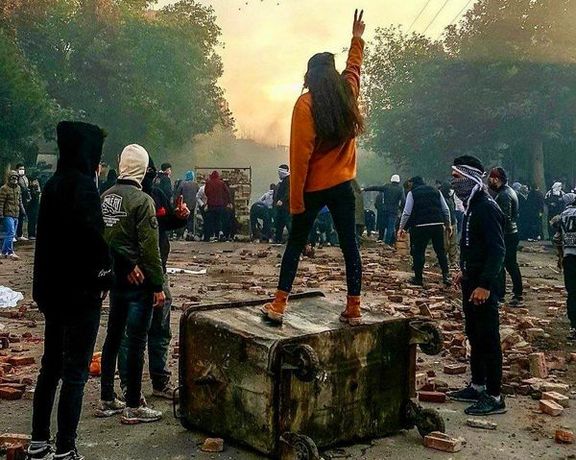
Regardless of whether or not the morality police were actually disbanded, "compulsory hijab" is codified by law in Article 638 of the Islamic Penal Code. It states: "Women who appear without an Islamic hijab in the streets and public will be sentenced to imprisonment from ten days to two months, or a fine of fifty thousand to five hundred thousand Rials." And according to Article eight of the IRI’s Constitution, if someone is not following the Islamic Rules, any citizen can demand that person follow the laws. That’s why we see plain clothes officers or even regular citizens verbally abuse women or even threaten them by calling the police if they don’t wear their compulsory Hijab.
The cruel reality for Iranian women goes far beyond the rules around Hijab. By law, women can’t divorce their husbands, have no child custody rights, receive half inheritance, and can’t leave the country without their husbands' permission. Women also cannot become judges, study certain subjects, play certain sports, enter stadiums, mingle with men, or get elected or appointed into several key positions, including Supreme Leader, President of the Country, President of the Judiciary System, Member of the Guardian Council or Expediency Council, and others. Girls as young as nine can be forced to marry men their father’s pick. Men can legally marry four women and have as many concubines as they wish. Men also can beat their wives. So how can a regime that subjugates women, with so many discriminatory laws, be a member of the Commission on the Status of Women?
Iran is going through a real ‘Renaissance,’ a revolution demanding freedom, democracy, secularism, equality, and justice. Iranians are tired of the restrictions of the gender-apartheid Islamic regime on what they can eat or drink or wear, who they can talk to, and whom they can love. They are tired of the mismanagement of their country's natural resources and nature by clerics and their offspring. A free-democratic Iran means peace and prosperity for the Middle East. Without the Islamic regime, a state sponsor of terrorism, its neighboring countries will be more peaceful, and Iranians will have the freedom and justice they desperately seek. And we need western voices to help get us there.
The opinions expressed by the author are not necessarily the views of Iran International
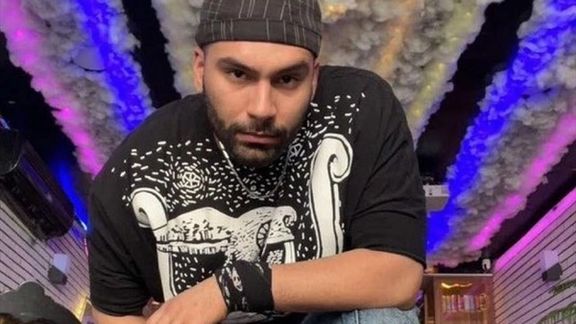
Tens of Iranian human rights activists have called on the UN Secretary General to react to the execution of 23-year-old protester Mohsen Shekari and the heavy-handed crackdown on protesters.
In an open letter December 10, 45 Iranian activists told António Guterres that only a prompt reaction of the United Nations, democratic governments and influential figures can stop the execution and repression machine of the Islamic Republic of Iran.
Condemning Shekari's execution, the signatories called his trial “horrifying, hasty and extra-judicial” saying it was similar to “Kangaroo and war time court(s).”
Mohsen Shekari, who was convicted of injuring a security guard with a knife and closing off a street in the capital Tehran, was hanged December 8 as the first detained protester to receive the death penalty.
“We, the undersigned…strongly condemn this murder [and] urgently ask your excellency, as the highest authority at this august institution…to use every legal lever to mobilize the international community…to directly and immediately call on the Islamic Republic to cease issuing such sentences,” reads the letter.
Lawyer Nasrin Sotoudeh, Nobel laureate Shirin Ebadi, Mahmoud Amiri Moqqadam, Saeed Dehqan, Parastou Forouhar are among the prominent activists who have signed the letter.
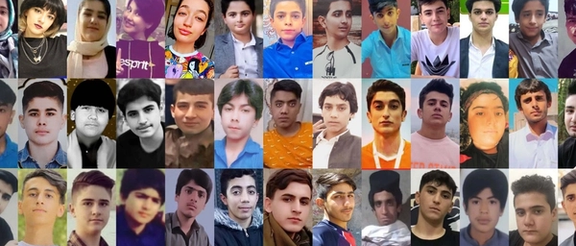
Amnesty International this week criticized Iran for stopping families questioning the circumstances of under-18s’ deaths in current unrest.
Amnesty said it had identified 13 cases in which security forces had “subjected them to coercion including arbitrary arrest and detention” or had made “ threats to bury the bodies of their loved ones in [an] unidentified location.” There had also been “been threats to kill, rape, detain or otherwise harm bereaved parents and their surviving children.”
Forty-four under-18s – children and teenagers had been killed either as protestors or bystanders, the group said Friday. This was 14 percent of a total 300 deaths Amnesty refers to, a figure that appeared not to include the 61 dead members of security forces or state employees given by Norway-based group HRANA this week. HRANA put the number of dead protestors at 475.
Of the 44 under-18s killed, said Amnesty 18 were Baluchi, of which 13 were killed on September 30 in Zahedan, when violence broke out around a Sunni mosque. Ten of the under 18s were Kurds. Over half therefore – 60 percent – were from the most restive parts of Iran, where non-Persians are also part of the minority Sunni sect. The other 16 were killed in six provinces elsewhere in Iran.
Amnesty quoted a relative of a young person killed in Sistan-Baluchistan province saying the testimonies of witnesses were deemed “worthless” as Baluchis were not considered human. In nine cases of under-18s killed in Sistan-Baluchistan, Iran has told the United National Human Rights Council there was no record of their deaths.
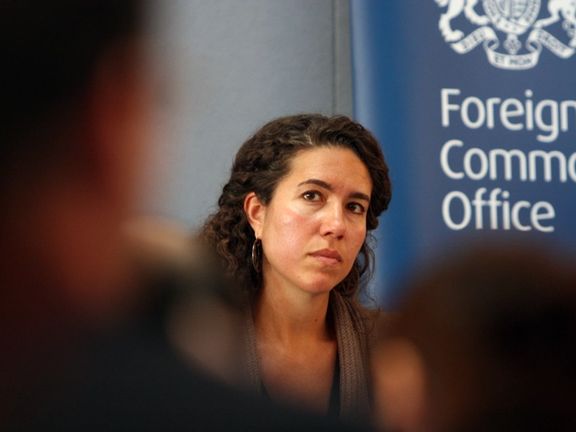
Victims overwhelmingly male
The 44 under-18 victims verified by Amnesty were overwhelmingly (39) male, with the youngest aged two. Of the five females, one was 17, three 16, and one aged six. Thirty-four were shot with live ammunition, four killed by metal pellets, “five died from injuries consistent with fatal beatings, and one girl was killed after being struck on the head with a tear gas canister.”
Heba Morayef, Amnesty International’s Regional Director for the Middle East and North Africa, said a UN fact-finding mission on authorities’ actions during the protests, set up in November, should lead “all states to exercise universal jurisdiction to criminally investigate Iranian officials involved in militarized attacks on demonstrators, including children.”
Javaid Rahman, the UN special rapporteur on human rights in Iran, has also called for the application of universal jurisdiction against individuals by both national and international courts. But there is widespread international skepticism of the UN probe, partly due to its main sponsor the US having a long history of opposition to international jurisdiction, and little expectation it will lead to judicial proceedings.
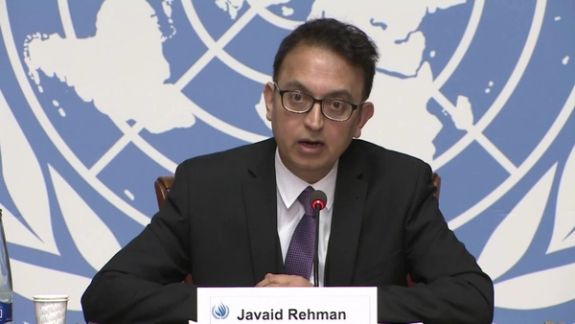
Immunity to prosecution?
While Washington had levied further sanctions on Iran over ‘human rights,’ it has long refused to join the International Criminal Court. The Biden administration recently told a US court that Saudi crown prince Mohammad bin Salman, believed by US intelligence to have ordered the killing of dissident journalist Jamal Khashoggi, is “immune from prosecution” as Saudi prime minister.
Twitter posts Friday alleged attendance was restricted at the funeral of a 23-year-old man hanged in Iran the previous day after conviction in a Revolutionary Court over a knife attack on a member of a Basji security group. Social media also carried footage said to be people in the man’s neighborhood chanting they would “kill the one who killed out brother” and threatening the death of Ali Khamenei, Iran’s Supreme Leader.
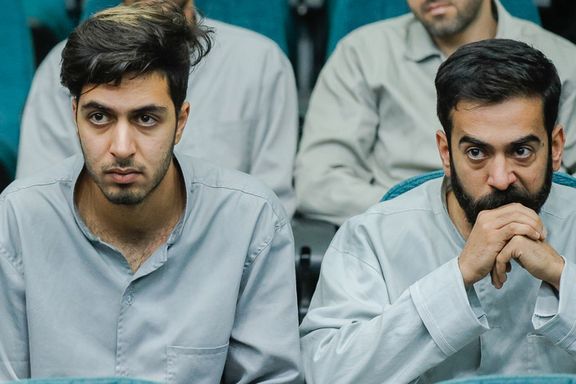
The Iranian regime keeps up pressure on detained protesters with physical, sexual, and mental torture in prison, reports from family members and others say.
Activists reported on Saturday that Mohammad Mehdi Karami, who is sentenced to death for the alleged murder of a pro-regime Basij member during a protest on November 3, has told his family about his “severe physical and mental abuse by government agents.”
According to him, “he was beaten so hard [during arrest] that he lost consciousness and security forces thought he was dead and threw his body near a courthouse but as they were leaving, they realized he was still alive.”
Karami further told the family that regime agents sexually harassed him during detention and “threatened to rape him while touching his genitals.”
Karami along with a few others is accused of murdering a Basij security agent named Ruhollah Ajamian, who was sent to Karaj, near Tehran to confront protesters. Karami has been accused of “corruption on earth,” a serious crime under Iran’s Islamic laws, which carries the death sentence.
This is not the first report of regime’s torture and abuse of detained protestors.
Family members of another protester say their 22-year-old son, Shadman Ahmadi, has died in prison after being tortured for hours following his detention during a protest in the western city of Dehgolan in Kordestan province.
The France-based Kurdistan Human Rights Network quoted his family as saying that Shadman was killed on December 8 as the result of torture during detention.
A Telegram channel affiliated with the Islamic Revolutionary Guard in Kurdistan has implicitly confirmed Shadmani’s arrest on charges of “destroying public property, intimidation and disrupting public order” during the popular protests in Dehgolan.
The Center for Human Rights in Iran (CHRI) said December 6 that there have been many reports of detained university students being tortured and sexually abused while in state custody.
“Many cases of sexual assaults against individuals in Iranian custody have gone unreported, due to fears of further retaliation by Islamic Republic forces,” added CHRI.
CHRI identified some university students, who have been abused and detained for long periods without access to legal counsel.
Soha Mortezei, a former Tehran University female student, who has been repeatedly arrested for engaging in peaceful activism, was physically and sexually assaulted while being transferred to Evin prison after being arrested, reports CHRI.
“Officers tied Soha’s right hand to the top of one seat and her right leg to the top of another seat while suspended, she was beaten and sexually abused by a female officer,” reported the University Students Trade Unions Council on November 27. “When she complained, she was injured with punches to the leg and stomach.”
Melika Gharegozlou, is another female student arrested on October 2 who was taken to a psychiatric hospital where she was tortured, added CHRI.
Earlier a Kurdish-Iranian woman told CNN she both witnessed and suffered sexual violence while detained. “There were girls who were sexually assaulted and then transferred to other cities,” she said. “They are scared to talk about these things.”
Thousands of unidentified inmates are tortured in Iran’s prisons. Some have been condemned to death or charged with heavy sentences, without having access to a lawyer. Many others are also tortured to make false confessions. Under such circumstances, Iran Human Rights Monitor in its 2022 annual report said only 25 cases of detainees’ death under torture have been recorded while the true figure might be much higher.